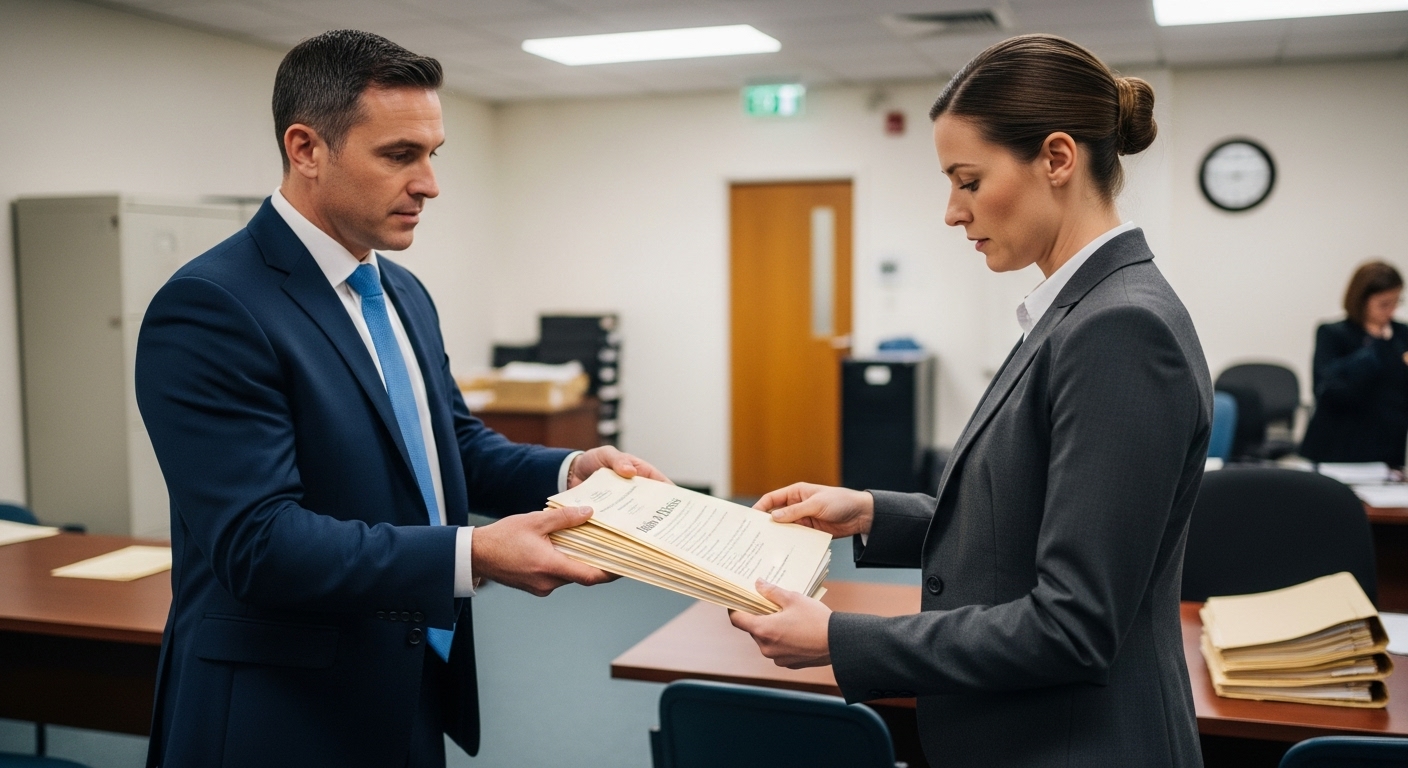How Long Does the CPS Take to Reach a Decision?

How Long Does the CPS Take to Reach a Decision?
‘How long does the CPS take to reach a decision?’
What is the Role of the CPS in Charging Decisions?

 There is enough evidence for a realistic prospect of conviction.
There is enough evidence for a realistic prospect of conviction. It is in the public interest to prosecute.
It is in the public interest to prosecute. The case has been investigated properly and fairly.
The case has been investigated properly and fairly.How Long Does the CPS Take to Decide on Charges?
1. Summary Offences (Decision in Days or Weeks)
 Examples: Minor assaults, shoplifting, public disorder offences.
Examples: Minor assaults, shoplifting, public disorder offences. Expected Timeframe: A few days to 4 weeks.
Expected Timeframe: A few days to 4 weeks. Reason: These cases are straightforward, involve minimal evidence, and are typically dealt with in the Magistrates’ Court.
Reason: These cases are straightforward, involve minimal evidence, and are typically dealt with in the Magistrates’ Court.2. Either-Way Offences (Weeks to Months)
 Examples: Theft, fraud, possession of drugs with intent to supply, actual bodily harm (ABH).
Examples: Theft, fraud, possession of drugs with intent to supply, actual bodily harm (ABH). Expected Timeframe: Several weeks to 3 months.
Expected Timeframe: Several weeks to 3 months. Reason: These cases may require further police investigation, forensic analysis, or witness statements before a decision is reached.
Reason: These cases may require further police investigation, forensic analysis, or witness statements before a decision is reached.3. Indictable-Only Offences (Months to Years)
 Examples: Murder, rape, complex fraud, serious organised crime.
Examples: Murder, rape, complex fraud, serious organised crime. Expected Timeframe: Several months to over a year.
Expected Timeframe: Several months to over a year. Reason: These cases require in-depth investigation, expert forensic evidence, and sometimes multiple defendants, making the charging process lengthy.
Reason: These cases require in-depth investigation, expert forensic evidence, and sometimes multiple defendants, making the charging process lengthy.Factors That Affect the CPS Decision Time

 Complexity of the Case – More complex cases require an extensive evidence review.
Complexity of the Case – More complex cases require an extensive evidence review. Forensic Evidence Processing – DNA, fingerprint, and electronic device analysis can delay decisions.
Forensic Evidence Processing – DNA, fingerprint, and electronic device analysis can delay decisions. Witness Cooperation – If key witnesses are unavailable or reluctant to testify, this can impact the timeline.
Witness Cooperation – If key witnesses are unavailable or reluctant to testify, this can impact the timeline. CPS Workload – High-profile or backlog cases can slow down the decision-making process.
CPS Workload – High-profile or backlog cases can slow down the decision-making process. Further Police Investigations – Sometimes, the CPS may return a case for further investigation before making a final decision.
Further Police Investigations – Sometimes, the CPS may return a case for further investigation before making a final decision.Can You Speed Up a CPS Charging Decision?
 Request Regular Updates – Your solicitor can contact the CPS or police for case progress.
Request Regular Updates – Your solicitor can contact the CPS or police for case progress. Submit Additional Evidence – If there is evidence that can clarify the case, provide it as soon as possible.
Submit Additional Evidence – If there is evidence that can clarify the case, provide it as soon as possible. Apply for Early Review – In some cases, legal representatives can request an expedited decision.
Apply for Early Review – In some cases, legal representatives can request an expedited decision. Challenge Delays – If there are unreasonable delays, your solicitor can take legal action to prompt a decision.
Challenge Delays – If there are unreasonable delays, your solicitor can take legal action to prompt a decision.What Happens After the CPS Makes a Decision?
1. No Further Action (NFA)
 The CPS decides not to charge due to a lack of evidence or public interest.
The CPS decides not to charge due to a lack of evidence or public interest. The suspect is released without further action.
The suspect is released without further action. The case can still be reopened if new evidence emerges.
The case can still be reopened if new evidence emerges.2. Charge is Approved
 The CPS authorises charges, and the case proceeds to court.
The CPS authorises charges, and the case proceeds to court. The suspect is either bailed or remanded in custody.
The suspect is either bailed or remanded in custody. A court date is set for the first hearing.
A court date is set for the first hearing.3. Request for More Evidence
 The CPS may ask the police for additional evidence before making a final decision.
The CPS may ask the police for additional evidence before making a final decision. The investigation remains open while further enquiries are conducted.
The investigation remains open while further enquiries are conducted.What to Do If You Are Waiting for a CPS Decision

 Stay in Contact with Your Solicitor – They can check for case updates and advise on next steps.
Stay in Contact with Your Solicitor – They can check for case updates and advise on next steps. Avoid Contacting Witnesses or Alleged Victims – This can be misinterpreted and harm your case.
Avoid Contacting Witnesses or Alleged Victims – This can be misinterpreted and harm your case. Prepare for All Outcomes – Whether the CPS decides to charge or not, being legally prepared is crucial.
Prepare for All Outcomes – Whether the CPS decides to charge or not, being legally prepared is crucial. Seek Emotional and Legal Support – Waiting for a decision can be stressful; professional guidance can help.
Seek Emotional and Legal Support – Waiting for a decision can be stressful; professional guidance can help.How a Solicitor Can Help During the CPS Decision Process
 Monitor the progress of the case and liaise with the CPS.
Monitor the progress of the case and liaise with the CPS. Ensure evidence is fairly reviewed and defend against weak allegations.
Ensure evidence is fairly reviewed and defend against weak allegations. Challenge unnecessary delays if the CPS is taking too long.
Challenge unnecessary delays if the CPS is taking too long. Advise on your legal rights and prepare a defence strategy if charges are approved.
Advise on your legal rights and prepare a defence strategy if charges are approved. Assist in appealing an NFA decision if necessary.
Assist in appealing an NFA decision if necessary.How Long Does the CPS Take to Reach a Decision? Understanding the Timeline and What to Expect

 If you need legal assistance regarding a CPS charging decision, contact our specialist solicitors today for expert advice and representation.
If you need legal assistance regarding a CPS charging decision, contact our specialist solicitors today for expert advice and representation.Notice: Informational Content Disclaimer
The content provided on this website, including articles, blog posts, and other informational materials, is intended for general informational purposes only. It is not intended as, and should not be considered, legal advice.
Visitors to this website should be aware that the information presented here is not a substitute for seeking legal advice from a qualified solicitor or legal professional. Each individual's legal situation is unique, and the information provided may not be applicable to specific circumstances.
If you require legal advice or have specific legal questions, we encourage you to contact us directly. Our experienced team of solicitors is here to assist you with your legal needs and provide tailored advice to address your concerns.
Please be advised that any communication through this website, including the use of contact forms or email, does not create a solicitor-client relationship. Confidential or time-sensitive information should not be sent through this website. To establish a solicitor-client relationship and discuss your legal matters in detail, please contact us for a consultation.
We strive to provide accurate and up-to-date information, but we make no representations or warranties regarding the accuracy, completeness, or suitability of the information contained on this website. We shall not be liable for any reliance placed on the information provided herein.
Thank you for visiting our website. We look forward to the opportunity to assist you with your legal needs.




